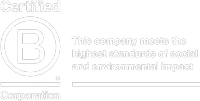Purpose will always be the foundation that we continue to build our business upon. We love that Simon Sinek’s writing also aligns with this value and below you can read more about the importance of partnering your WHY, with HOW and WHAT, to give you a kickstart on your journey within this Conscious Business movement that is spreading across the globe.
clarity of WHY
It all starts with clarity. You have to know WHY you do WHAT you do. If people don’t buy WHAT you do, they buy WHY you do it, so it follows that if you don’t know WHY you do WHAT you do, how will anyone else? If the leader of the organization can’t clearly articulate WHY the organization exists in terms beyond its products or services, then how does he expect the employees to know WHY to come to work? If a politician can’t articulate WHY she seeks public office beyond the standard “to serve the people” (the minimum rational standard for all politicians), then how will the voters know whom to follow? Manipulations can motivate the outcome of an election, but they don’t help choose who should lead. To lead requires those who willingly follow. It requires those who believe in something bigger than a single issue. To inspire starts with the clarity of WHY.
discipline of HOW
Once you know WHY you do what you do, the question is HOW will you do it? HOWs are your values or principles that guide HOW to bring your cause to life. HOW we do things manifests in the systems and processes within an organization and the culture. Understanding HOW you do things and, more importantly, having the discipline to hold the organization and all its employees accountable to those guiding principles enhances an organization’s ability to work to its natural strengths. Understanding HOW gives greater ability, for example, to hire people or find partners who will naturally thrive when working with you.
Ironically, the most important question with the most elusive answer—WHY do you do what you do?—is actually quite simple and efficient to discover (and I’ll share it in later chapters). It’s the discipline to never veer from your cause, to hold yourself accountable to HOW you do things; that’s the hardest part. Making it even more difficult for ourselves, we remind ourselves of our values by writing them on the wall… as nouns. Integrity. Honesty. Innovation. Communication, for example. But nouns are not actionable. They are things. You can’t build systems or develop incentives around those things. It’s nearly impossible to hold people accountable to nouns.
“A little more innovation today if you would please, Bob.” And if you have to write “honesty” on your wall to remind you to do it, then you probably have bigger problems anyway.
For values or guiding principles to be truly effective they have to be verbs. It’s not “integrity,” it’s “always do the right thing.” It’s not “innovation,” it’s “look at the problem from a different angle.” Articulating our values as verbs gives us a clear idea… we have a clear idea of how to act in any situation. We can hold each other accountable to measure them or even build incentives around them. Telling people to have integrity doesn’t guarantee that their decisions will always keep customers’ or clients’ best interests in mind; telling them to always do the right thing does. I wonder what values Samsung had written on the wall when they developed that rebate that wasn’t applicable to people living in apartment buildings.
The Golden Circle offers an explanation for long-term success, but the inherent nature of doing things for the long term often includes investments or short-term costs. This is the reason the discipline to stay focused on the WHY and remain true to your values matters so much.
consistency of WHAT
Everything you say and everything you do has to prove what you believe. A WHY is just a belief. That’s all it is. HOWs are the actions you take to realize that belief. And WHATs are the results of those actions—everything you say and do: your products, services, marketing, PR, culture and whom you hire. If people don’t buy WHAT you do but WHY you do it, then all these things must be consistent. With consistency people will see and hear, without a shadow of a doubt, what you believe. After all, we live in a tangible world. The only way people will know what you believe is by the things you say and do, and if you’re not consistent in the things you say and do, no one will know what you believe.
It is at the WHAT level that authenticity happens. “Authenticity” is that word so often bandied about in the corporate and political worlds. Everyone talks about the importance of being authentic. “You must be authentic,” experts say. “All the trend data shows that people prefer to do business with authentic brands.” “People vote for the authentic candidate.” The problem is, that instruction is totally unactionable.
How do you go into somebody’s office and say, “From now on, please, a little more authenticity.” “That marketing piece you’re working on,” a CEO might instruct, “please make it a little more authentic.” What do companies do to make their marketing or their sales or whatever they’re doing authentic?
The common solution is hilarious to me. They go out and do customer research and they ask the customers, what would we have to tell you for us to be authentic? This entirely misses the point. You can’t ask others what you have to do to be authentic. Being authentic means that you already know. What does a politician say when told to be “more authentic”? How does a leader act more “authentically”? Without a clear understanding of WHY, the instruction is completely useless.
What authenticity means is that your Golden Circle is in balance. It means that everything you say and everything you do you actually believe. This goes for management as well as the employees. Only when that happens can the things you say and do be viewed as authentic. Apple believed that its original Apple computer and its Macintosh challenged the dominant IBM DOS platforms. Apple believes its iPod and iTunes products are challenging the status quo in the music industry. And we all understand WHY Apple does what it does. It is because of that mutual understanding that we view those Apple products as authentic. Dell introduced mp3 players and PDAs in an attempt to enter the small electronics business. We don’t know what Dell’s WHY is, we have no certainty about what the company believes or WHY it produced those products beyond self-gain and a desire to capitalize on a new market segment. Those products are not authentic. It’s not that Dell couldn’t enter other markets—it certainly has the knowledge and ability to make good products—but its ability to do so without a clear understanding of WHY is what makes it much harder and much more expensive. Just producing high-quality products and marketing them does not guarantee success. Authenticity cannot be achieved without clarity of WHY. And authenticity matters.
Ask the best salesmen what it takes to be a great salesman. They will always tell you that it helps when you really believe in the product you’re selling. What does belief have to do with a sales job? Simple. When salesmen actually believe in the thing they are selling, then the words that come out of their mouths are authentic. When belief enters the equation, passion exudes from the salesman. It is this authenticity that produces the relationships upon which all the best sales organizations are based. Relationships also build trust. And with trust comes loyalty. Absent a balanced Golden Circle means no authenticity, which means no strong relationships, which means no trust. And you’re back at square one selling on price, service, quality or features. You are back to being like everyone else. Worse, without that authenticity, companies resort to manipulation: pricing, promotions, peer pressure, fear, take your pick. Effective? Of course, but only for the short term.
Being authentic is not a requirement for success, but it is if you want that success to be a lasting success. Again, it goes back to WHY. Authenticity is when you say and do the things you actually believe. But if you don’t know WHY the organization or the products exist on a level beyond WHAT you do, then it is impossible to know if the things you say or do are consistent with your WHY. Without WHY, any attempt at authenticity will almost always be inauthentic.
This is an excerpt from Simon Sinek’s book Start With Why; Part 2, Chapter 5: ‘Clarity, Discipline and Consistency’.
Do you need help getting clarity of why when it comes to your brand? Develop the Why, How and What of your brand with our free Brand Clarity Video Series.








